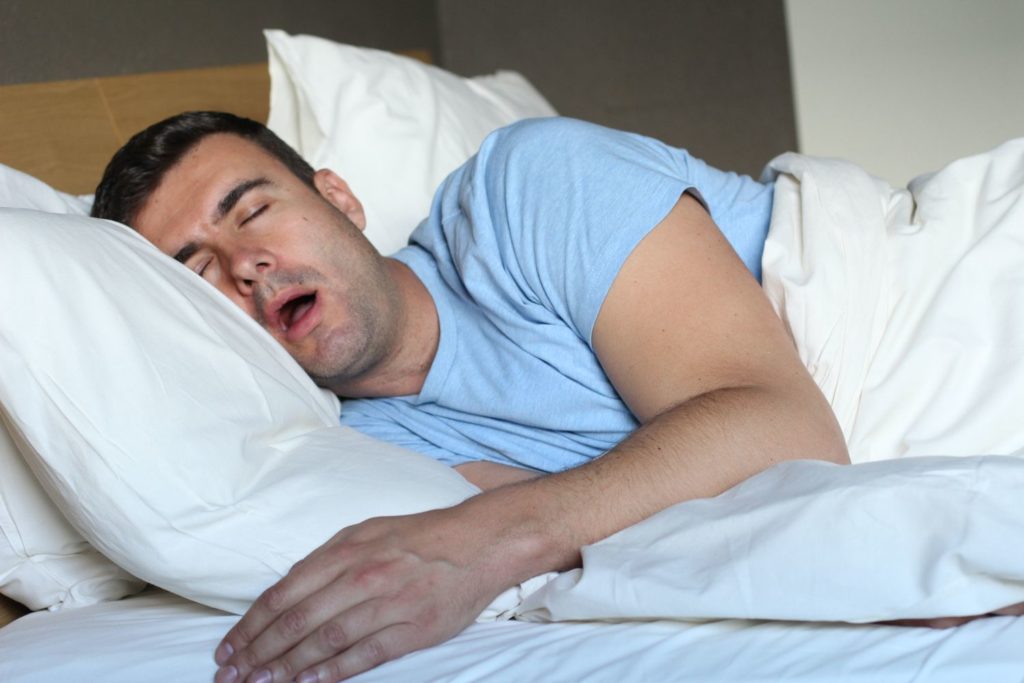Have you been told that you snore in your sleep? It could be a sign that you have sleep apnea. While not all snoring means that you have sleep apnea, you should take it seriously if it is combined with other symptoms. If you wake without feeling rested, you could have sleep apnea.
Other symptoms include headaches, irritability, or difficulty staying awake. Sleep apnea is not just a minor inconvenience; it can be a dangerous disorder. If you think you have sleep apnea, you should talk to a medical professional as soon as possible.

What Is Sleep Apnea?
Sleep apnea is a serious sleep disorder that interrupts your breathing as you sleep. This disrupted breathing is not just a couple of pauses in breath. Instead, your breathing can stop hundreds of times a night, leaving you unrested.
There are a few different types of sleep apnea: obstructive, central, and complex.
Obstructive sleep apnea occurs when the soft tissues in your throat block your airway. When you sleep, your muscles relax in order to rest fully. However, the muscles relax too much and obstruct your breathing.
Another form of sleep apnea is complex sleep apnea. This happens when your brain doesn’t send the correct signals to your muscles. Like an electrical connection, the wiring is faulty, meaning your muscles will not contract.
Complex sleep apnea is a combination of complex and obstructive sleep apnea.
Risks Associated with Sleep Apnea
When you stop breathing in your sleep, your body will try to rouse you. This means that you are constantly waking throughout the night, making it hard to feel rested. After a while, this can begin to affect your mood, concentration, and memory. In addition, your body requires sleep to keep your organs functioning, so a lack of rest can create more problems.
With sleep apnea, your body panics when you stop breathing, which is why you rouse. When you panic, your body releases cortisol and adrenaline—stress hormones. Usually, these hormones help your brain make quick decisions and your body move faster. However, long-term exposure to these hormones can damage your immune system.
People with sleep apnea are more likely to have heart problems. This is because constantly waking and not breathing can put excess strain on your heart.
How Can A Dentist Help?
The main course of treatment for sleep apnea is a CPAP machine. This machine delivers a steady stream of oxygen to your body. Not only does this keep your blood oxygen at safe levels, but it also keeps your airway open.
If you have obstructive sleep apnea, your dentist can offer another treatment option. Oral appliance therapy (OAT) is a device you place in your mouth while sleeping. Patients with mild to moderate obstructive sleep apnea may not have to use a CPAP machine. The oral appliance keeps your tongue and soft palate in the proper position so that they don’t block your airway.
